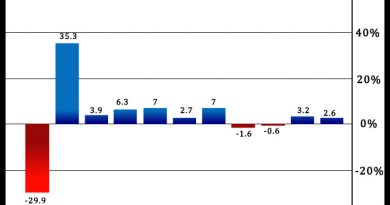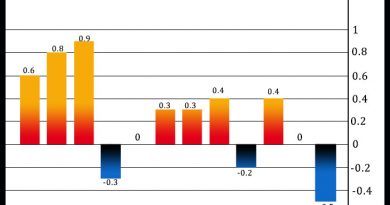With homeownership unreachable, Gen Z are putting their money in shares
Save articles for later
Add articles to your saved list and come back to them any time.
Younger, Gen Z investors are continuing to enter the stock market at a record pace thanks to a raft of easy to understand trading options, prompting warnings from finance veterans on the importance of taking time to research and consider the risks associated with each investment.
According to the 2023 ASX Australian Investor Study, 18–24-year-old “next-generation” investors now account for 9 per cent of the 10.2 million Australians investing outside real estate or superannuation. Of those, 63 per cent only began investing in the last two years.
University student Larissa Scott started investing during the pandemic, with her portfolio consisting mostly of ETFs.Credit: Ryan Bourke
These investors are heavily influenced by social media, the study found, along with environmental, social, and governance (ESG) factors. They also hold 33 per cent of their portfolio in exchange-traded funds (ETFs) and 31 per cent in cryptocurrency, higher than any other demographic.
Beginning in the pandemic, the boom in Gen Z investors is the product of unprecedented accessibility offered by new trading platforms, a growing perception of homeownership as being unattainable, and social media’s role as a resource for new investors looking to learn the basics.
Tom Morris, a 21-year-old university student from Sydney, invests using Superhero, one of many app-based trading platforms that gained popularity during the pandemic. Unlike traditional broking platforms and services, users can sign up and begin investing quickly, while trading fees rarely exceed a few dollars.
Like many Gen Z investors, Morris also turned to social media for advice when he started. “There was this guy who used to do live streams on YouTube, you could ask questions about shares, and he’d reply in real-time,” he says. “It was a great place to start.”
Morris also likes to invest in tech companies he has experience with, including Life 360, a location-sharing app he and his friends have used since they were 15. Sustainability is also a large driver of his investment decisions, with Morris’ portfolio including lithium recycling plants and environmental compliance software.
He’s not alone: in the last year, 22 per cent of next-gen investors bought or traded a share based on environmental concerns. Ultimately, Morris hopes to make enough money to pay off a sizeable portion of his HECS debt.
Larissa Scott also started investing during the pandemic. The 21-year-old Canberran’s portfolio consists mostly of ETFs (a tradable unit of bundled shares), which she finds to be less risky than individual stocks as they include “a larger range of companies.”
When it comes to her friends, Scott says that she hasn’t come across any other women her age who invest. And while the number of female investors is rising, 64 per cent of the 8 million Australians who have never invested are women, compared to the 34 per cent who are men.
Tom Morris turned to social media for advice when he started.Credit: Ryan Bourke
“I don’t think I’ve spoken to other female investors, they’re all men. So, I am a minority, even within Gen Z,” she says. Scott says she’ll continue to prioritise her portfolio over more traditional financial goals like saving for a deposit on a house, which is unattractive to her in the current housing market.
David Currie is the director of Wealthy Self, a financial advisory firm specialising in millennial and young professional clients. Currie attributes Gen Z’s rapid uptake of retail investing to the fact that it has “never been easier.”
“In this day and age, it’s accessible, it’s low cost, and the platforms are user-friendly enough for anyone to use,” he says.
However, Currie says he’s noticed that with increased accessibility, younger people are investing a lot more impulsively than previous generations, especially when social media trends become part of the equation.
“The caution for young people is, what are you actually investing in? What’s the actual risk that you’re taking on? It usually takes a lot longer than 10 minutes to do that research.”
As for Tom and Larissa, their experiences reflect a generation influenced by social conscience and expediency when investing in the social media age.
Ryan Bourke is a third-year student at the Australian National University. He is the 2024 editor-in-chief of the ANU Observer and is passionate about policy, politics and economics.
- Advice given in this article is general in nature and is not intended to influence readers’ decisions about investing or financial products. They should always seek their own professional advice that takes into account their own personal circumstances before making any financial decisions.
For expert tips on how to save, invest and make the most of your money, delivered to your inbox every Sunday, sign up for our Real Money newsletter here.
Most Viewed in Money
From our partners
Source: Read Full Article






